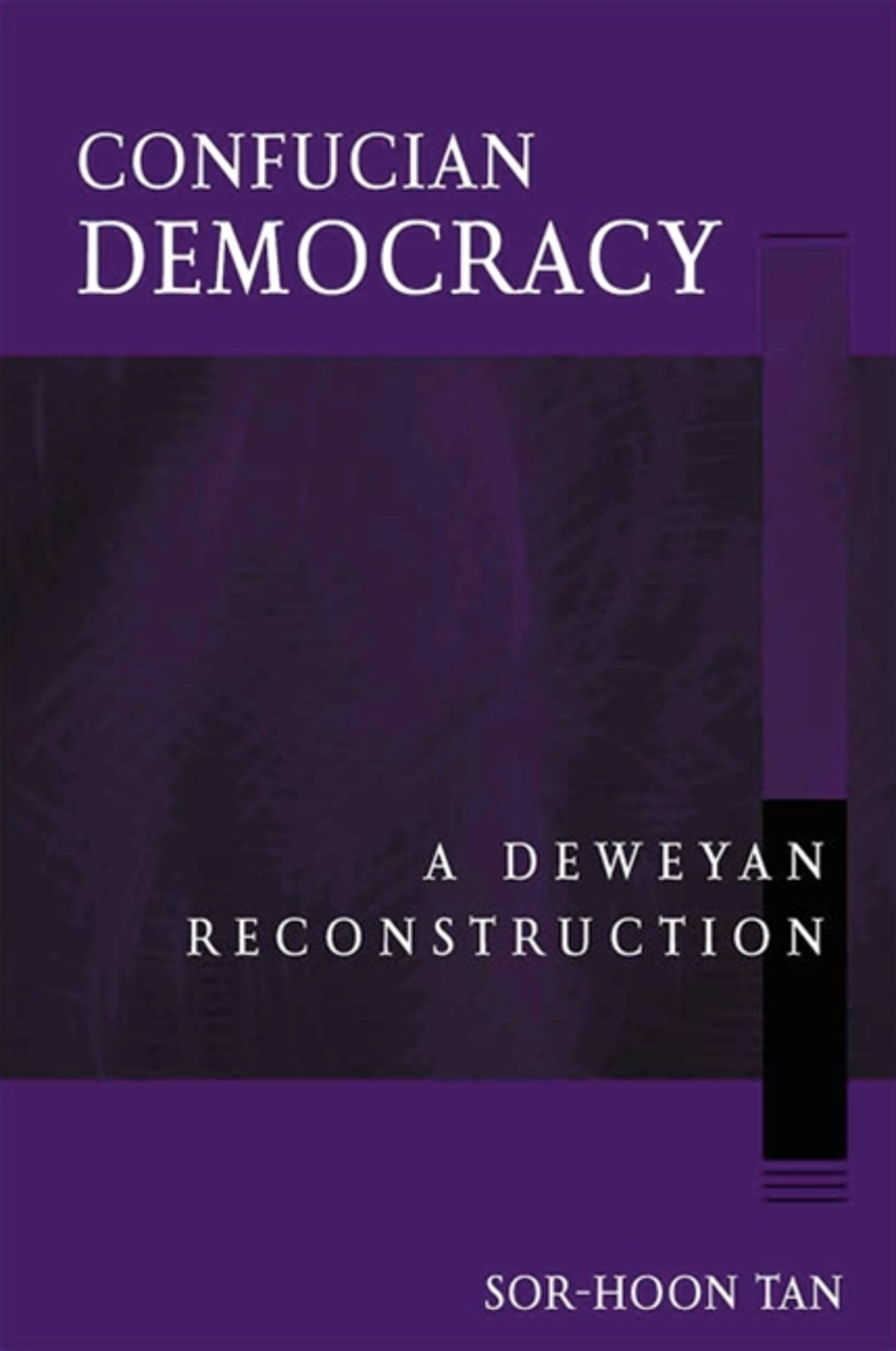We're sorry. An error has occurred
Please cancel or retry.
Confucian Democracy

Some error occured while loading the Quick View. Please close the Quick View and try reloading the page.
Couldn't load pickup availability
- Format:
-
26 February 2004

Using both Confucian texts and the work of American pragmatist John Dewey, this book offers a distinctly Confucian model of democracy.
Through a detailed study of relevant concepts and theories in Confucianism and John Dewey's pragmatist philosophy, this book illustrates the possibility of Confucian democracy and offers an alternative to Western liberal models. Sor-hoon Tan synthesizes the two philosophies through a comparative examination of individuals and community, democratic ideals of equality and freedom, and the nature of ethical and political order. By constructing a model of Confucian democracy that combines the strengths of both Confucianism and Deweyan pragmatism, this book explores how a premodern tradition could be put in dialogue with contemporary political and philosophical theories.


"…this book is well written and persuasively argued." — Dao: A Journal of Comparative Philosophy
"Globalization is now a buzzword that may well be dying the slow death of a lack of meaning brought on by overuse. In Confucian Democracy … Sor-hoon Tan offers a brilliant essay in comparative philosophy that single-handedly restores depth, nuance, and importance to this still key concept. She does so through a meticulous engagement with the best of scholarship on Confucius and Dewey, and in the process she also uncovers new layers of significance in the works of these two giants of thought. All in all her book is a remarkable achievement and one that will prove invaluable as the meaning of 'global philosophy' evolves over the coming decades." — Philosophy East & West
"…Tan's Deweyan reconstruction of Confucianism proves to be a very fruitful and stimulating dialogue between East and West. Her definition of Confucian democracy, the similarities and differences she identifies from Confucianism and Deweyan pragmatism, and the ways she suggests for reconstructing Confucianism are significant contributions to the comparative study of Confucian and Deweyan philosophies, and they have 'practical cash value' for the reconstruction of current Asian societies." — Transactions of the Charles S. Peirce Society
"Extremely well-written and clear, this is an exemplary illustration of modern comparative philosophy. The whole question of whether or not there can be something we call a 'Confucian Democracy' is an extremely lively academic and political issue these days. Tan does an excellent job defining democracy and Confucianism with a balanced discussion between Dewey and various classical Chinese thinkers." — John Berthrong, author of All Under Heaven: Transforming Paradigms in Confucian-Christian Dialogue
"Tan's remarkable interweaving of Confucius and Dewey has both the practical cash value Dewey would insist upon and the carefully wrought authoritative texture Confucius would expect. She has written a wonderfully insightful and stimulating book." — George Allan, author of The Patterns of the Present: Interpreting the Authority of Form
Acknowledgments
1. Confucian Democracy?
Divining the Future
Whose Confucianism?
Which Democracy?
Liberals and Communitarians
Dewey and Confucius
2. Social Individuals
Liberal Self and Autonomy
Unique Rather Than Autonomous Individuals
Dewey’s Social Self-in-the-Making
Constructing a Confucian Conception of Self
Tension between Distinctness and Connectedness
Choice in the Liberal-Communitarian Debate
Dewey On Willing and Choosing
Confucian Choice: Learning and Thinking
Confucian Personal Commitment
Individuality and Organic Sociality
3. Harmonious Communities
Society and Community
Nonexclusionary Community
The Art of Community: Achieving Harmony
Achieving Harmony through Confucian Ritual Practice
The Science of Community: Cooperative Inquiry
Equality and Differentiated Orders
Equality in Human Relations
4. Ethico-Political Orders
The Political Domains of Procedural Republics
Ethico-Political Ends
Dewey on Politics in Ancient China
The Sage-King: An Ideal in Question
Exemplary Persons: Ethico-Political Ends-in-View
People As Basis (minben)
The Role of the People in Tianming
Are People Good Enough for Self-Government?
Faith in People
5. Authoritative Freedom
Negative and Positive Freedoms
Freedom As Growth
Confucian Positive Freedom
Right to Speak and Right Speech
Rights or Rites?
Authoritative versus Authoritarian
Coercion and Authority in Imperfect Situations
6. Cultivating Democracy
Reconstructing Confucianism and Democracy
Democracy and the Realpolitik of Stability
Notes
References
Index



